Gathering together powerful voices of feminist writers, peace activists, and matriarchal studies scholars from around the globe, The Legacy of Mothers reconceptualizes mothers, motherhood, and mothering as an alternative human logic to create a new sociopolitical order. The contributors draw on ancient knowledges, Indigenous perspectives, and African traditions like Motherism to argue for the reordering of our world according to a distinctly transformative feminism. The book then explores where this new logic is already taking root, demonstrating that a better world is not just possible but already evolving.
“Here is a heartfelt book that helps us reimagine human futures…. The liberation of mothering can lead us back to the earth-centric, sustainable lifestyle of our ancestors. Every reader will be inspired to flex their nurturing muscles and transform the world!”
—Darcia Narvaez, Professor Emerita of Psychology at the University of Notre Dame, author of Neurobiology and the Development of Human Morality: Evolution, Culture and Wisdom, and host of EvolvedNest.org
“This rich anthology edited by Erella Shadmi is an eloquent message for our time, with essays written in diverse voices from thinkers and activists around the world declaring that ‘motherhood is the best way to lead us out of patriarchy.’ Essentialist? No, absolutely essential!”
—Vicki Noble, feminist writer, healer, and teacher, co-creator of Motherpeace Tarot, and author of Motherpeace: A Way to the Goddess, Shakti Woman: Feeling Our Fire, Healing Our World, and The Double Goddess: Women Sharing Power
Erella Shadmi is a feminist, peace and anti-racism activist and scholar living in Israel. She co-founded Kol Ha’Isha (Jerusalem feminist centre), the Fifth Mother (a women’s peace movement), and the Ashkenazi women’s group established to contemplate on Ashkenazi racism. She has been active, among other things, in Women in Black, and the Mizrahi feminist movement, Achoti. She was a board member of B’tselem and a member of the Truth Commission for the Nakba in the Negev 1948-1960, established by Zochrot organization. She is now active in the Haifa Feminist Center, Isha Le’Isha, and currently leads the initiatives to establish the Center for Women’s Cultures and co-housing for elderly women. She is also active in two global networks, dealing with gift economy, matriarchal societies and Indigenous rights and knowledge. Erella is the former head of the Women’s Studies Program at Beit Berl Academic College, a unique program that is open to less-educated women and focuses on marginalized groups in Israel. Her numerous published books and articles deal with social change movements, male violence against women, Ashkenaziness, lesbianism, spirituality, the maternal gift economy and matriarchal societies. As a criminologist and one of the pioneering researchers of the Israel Police, she published several critical articles and the first of its kind a book on police and policing in Israel.
Introduction: Motherhood: Between Chaos, Failures, Magic and Vision
Erella Shadmi
Part I: Motherhood Under Patriarchy
Chapter 1: Austrian Welfare State and the Mother Trap
Mariam Irene Tazi-Preve
Chapter 2: Limbo
Ana Anonyma
Chapter 3: Between Holy Mary and Umna El Ghula: Reflections on an Anxious Motherhood
Honaida Ghanem
Chapter 4: Mother’s House
Shula Keshet
Chapter 5: Mothering Our Way Home from Sparta
Barbara Alice Mann
Part II: Motherhood Outside of Patriarchy
Chapter 6: Theory and Practice of the Gift Economy
Genevieve Vaughan
Chapter 7: Matriarchal Societies and Modern Matriarchal Studies
Heide Goettner-Abendroth
Chapter 8: Local Economies and Subsistence Culture
Veronika Bennholdt-Thompsen
Chapter 9: Motherism: Nature’s Own Way Is the Way of the Woman
Cathrine Acholonu
Chapter 10: Divine Surprise: The Female Side of God
Annine van der Meer
Part III: Motherhood as a Post-Capitalist Alternative
Chapter 11: The Road to an Egalitarian Society: Matriarchal Politics
Heide Goettner-Abendroth
Chapter 12: The Possibility of a Society of Peace in Israel/Palestine
Erella Shadmi
Chapter 13: Matriarchal Medicine: The Maternal Principle In Matriarchal Healing
Cécile Keller
Chapter 14: Nashira: Building a New Matriarchal Society in Colombia
Angela Dolmetsch
Chapter 15: Pagoda, Temple of Love 1977: Practice Ground for Matriarchy
Lin Daniels
Chapter 16: Rematriation: Bringing Our People Home
Susan Deer Cloud
from “Introduction: Motherhood: Between Chaos, Malfunction, Magic, and Vision” – Erella Shadmi
Uncertainty, chaos, conflicts, dilemmas, maternal thinking, unlimited giving, our mirrors, the source of life, the source of anger, the source of mental complications and pain, bliss, power—these are but a few of the common descriptions given to motherhood in the Western world. Motherhood awakens many moral and philosophical questions: what is life, what is creation, empowerment, responsibility, meaning of life, common sense and feeling, good and bad, morality and immorality? The mother figure is with us all our lives. Writers, poets, and artists tell about her, depict her, and fantasize about her. Satirists parade her conflicts and failures, philosophers, sociologists, psychologists, and doctors mold and interpret her with endless theories. Women share their experiences as mothers—but still, no one has ever managed to encompass the very complex definition of motherhood, and no one person has a proper answer to the question of the essence of motherhood and what is right and worthy motherhood. Finally, it remains a tangled mystery, a maze that moves between magic—the magic of mystery, creation, nurture, love, giving, the experience of togetherness and otherness—and the disillusion of magic—mothering, the failures, the guilt, the difficulties, the pain, its institutionalization, its nationalization. Motherhood is uncontrollable and indefinable. The secret of “proper” motherhood (how, for what purpose, for how long, etc.) remains and evokes the contemplation that maybe the search for proper motherhood is mistaken and reflects distrust in mothers themselves. This search and its hopelessness attest to the complexity and richness of motherhood and the impossibility to fully grasp it (which is why there is no “bible” for mothers, despite the constant attempts of Dr. Spock and others). Thus it remains flexible, ever changing, challenged and challenging—defiant, exceptional and ordinary.
Nonetheless, many try to control motherhood and use it for their own purposes: patriarchy, capitalism, religion, the state, the welfare system, politics, medicine. Mothers are blamed for almost everything, especially their sons’ and daughters’ behaviour, i.e., almost any social misconduct. As a result, their sons and daughters tend to blame them as well and do their best to stay as far away from them as possible (an act that socially and culturally, that is, patriarchally, is encouraged). All those who claim to know what motherhood is and how we, the mothers, are to be molded, create a disconnect between the mother and motherhood, distancing the mother from other mothers and of course from her children, undermining her confidence, cutting her off from her heritage and inclinations, and, in fact, leaving her alone in the face of giant institutions.
Despite everything, mothers usually do a good job; most of their children function well. Most mothers find their way through the maze of raising children and develop the necessary skills for the work of mothering—such as multi-tasking, maternal thinking, nurturing their children and themselves—despite all the attempts to control them. A woman is like nature—she simply learns from those surrounding her: her mother, her sisters, aunts, and friends. Mainly, however, she learns from her children by responding to their needs. Her road is strewn with trial and error, wonderment and learning, doubts and changing. Most mothers try to fulfill their children’s needs even if they feel trapped in their role or are ambivalent about it. Like other mature women who become mothers themselves, as time has passed, I admit that my mother did her best when raising me, despite mistakes she made. I wish I could be the mother and daughter I am today (to raise my daughter and regard my mother with my present understanding and wisdom) It is obviously not possible, but my motherhood and my mother’s motherhood were certainly not failures.
It is not surprising that mothers are usually invisible, and therefore few are the studies, if any, that directly examine their success in raising their children—if any criterion for such a study may be formulated at all—except, perhaps, by comparisons, for example, between only children and children with siblings. In other words, offspring’s achievements in education, employment, social skills, and so on are often comparatively examined. However, these achievements are usually not framed as the mother’s success. On the other hand, the focus is turned on the mothers when failure is apparent, such as a juvenile delinquent#151;a youth who steals, murders, rapes, or one who commits suicide following the abuse of his or her peers. That is when we all look to the mother: “Who raised them to be such monsters?”1 True, there are attempts to define and test parental efficacy, mainly by psychologists for the courts in cases of divorce or a child removed from home. In fact, no society has developed tools for the assessment and measurement of parental efficacy in the general population—all the more so of mothers—when the assumption is that parental efficacy exists in every adult (Yagil). Furthermore, not only are these measures of parental efficacy doubtful (Almagor and Erlich), they are intertwined with problematic legal rhetoric (Barkay; Barkay and Mass) and bureaucratic violence (Hertzog). Therefore, the claim that parental efficacy—which includes the mother’s efficacy—is measurable seems like another way, albeit legal, to define motherhood and control it, and is usually applied to mothers coming from a specific ethnic or social background (and is not necessarily for the benefit of the child).
Instead, we should ask: What harms mothers? What impedes the mother from fulfilling her task of mothering? Is there a way to decrease these impediments, by, for example, a supportive rather than a scrutinizing welfare system? Perhaps the problem does not lie with mothering itself, but in the invalidation of their unique power?
In order to step out of the maze all mothers are trapped in—a trap that patriarchy (with all its institutions: the market, the family, the religion, the violence, the state, etc.) reinforces time and again—it is not enough to expose mothering’s cloak of mystery (as generations of women philosophers, artists, poets, and writers have been doing); it is not enough to listen to the experiences of mothers that modern feminism encourages, aiming to improve mothering under patriarchy; it is not enough to deconstruct the institution of motherhood as initiated by Adrienne Rich—because as much as these have contributed to a more in-depth understanding of mothering, they have not yet deciphered the mystery. Moreover, such practices are still carried out within the patriarchal system, the only existing frame within which Western motherhood works.
What I suggest in this book is that only trust in the uniqueness and power of motherhood, together with the abandonment of the patriarchal framework—including socially controlled and structured motherhood, i.e., abandoning Western motherhood—can lead us to an alternative motherhood. In other words, I suggest liberation from patriarchy (and oppression in general) through motherhood.
For that purpose, I would like to introduce some of the difficulties I encounter with the prevailing feminist discourse regarding motherhood. As a feminist sociologist, I will focus on three main issues that occupy women, but not just women: the nuclear family, the meaning of urban life and loss of community, and the conflict between motherhood and career. I will discuss these issues to show their hopelessness, the dead end they lead us to and the disrespect and contempt within motherhood—what I call “the catch of motherhood.” As I usually do, I will combine my own personal experience with some thoughts, difficulties, and theories so as to acknowledge the “symbolic order of the mother” suggested by the Italian feminist Luisa Muraro (cited by Scarparo “In the Name of the Mother”). This acknowledgement is the first step towards change—not only towards a new social and feminist outlook on motherhood, but also, and mainly so, toward a new and empowered understanding of mothers themselves. Through this examination, I will introduce and depict motherhood concepts that exist outside the patriarchal system (those will be introduced in the second and third part of this book). These perceptions are not about the booby-trapped debate between the mother as an individual seeking self-fulfillment and the demands of society, family, and children. They do not aim to control the mother, to lay down a theory, dogma, or model of mothers or represent mothers. They are not trapped in the debate over the essentialism apparently involved in motherhood or femininity. They emerge from a totally different starting point and therefore lead not only to a different mothering but also to a different existence altogether, a different society—a society of balance and peace.

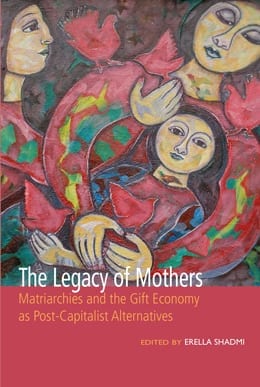


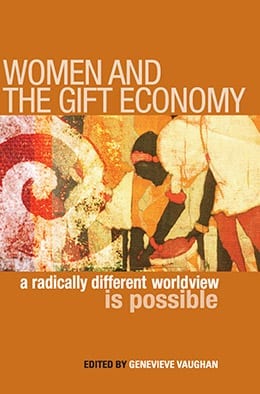
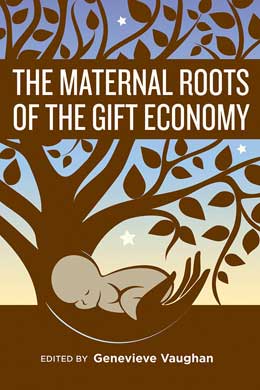
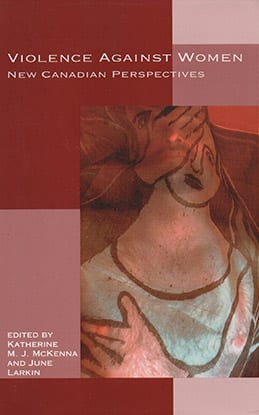

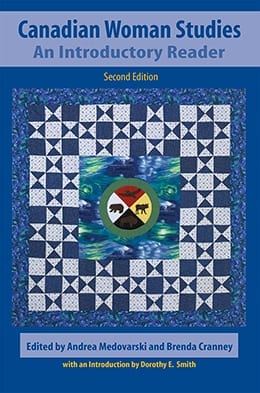
Reviews
There are no reviews yet.